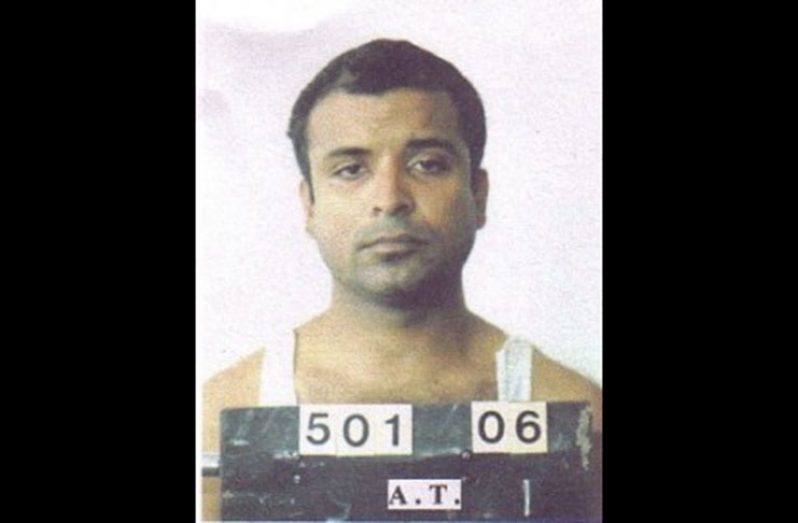-Harmon says citizens need closure
MINISTER of State Joseph Harmon on Friday said there is a possibility that President David Granger will soon launch a Commission of Inquiry into the extra-judicial killings that occurred during the ‘Troubles’ 2002-2009.
He made the statement one day after President Granger reassured the nation that full investigations will be done into the deaths of the hundreds of Guyanese, including the former Minister of Agriculture, Satyadeow Sawh. President Granger late in 2016 had told the National Assembly of what he called the descent of this country during the Bharrat Jagdeo administration, describing it as the “darkest hour” that was characterised by drug-driven chaos and bloodshed.
Jagdeo was President of Guyana from August 11, 1999 to December 3, 2011, during which there were three massacres: Lusignan where 11 people were killed, Bartica where another 12 were killed and Lindo Creek, where seven miners were slaughtered. Besides, there were countless extra-judicial killings, with some activists estimating that around 400 Afro-Guyanese males were gunned down.
Back in 2003-2006, convicted drug-trafficker Shaheed Roger Khan had set up a criminal network here, including active policemen and a number of former ranks, ostensibly to go after criminals, but at the same time protecting his narco-trafficking interests.
He was nabbed in neighbouring Suriname in 2006 while fleeing local police, and was later handed over to U.S. authorities. Although the PPP government had sought to distance itself from Khan, the drug-trafficker had stated publicly in an advertisement in local newspapers that he was fighting crime on behalf of the Jagdeo-led government.
Khan had also implicated former Health Minister Dr Leslie Ramsammy in his escapades, and documents bearing the then minister’s signature authorising the purchase of a sophisticated wire-tapping device were produced in U.S. courts during Khan’s trial.
Closure
While addressing reporters at the Ministry of the Presidency during a post-Cabinet media briefing on Friday, the State Minister recalled that in the 10th Parliament, the President, who was then leader of the opposition, had filed a motion to investigate, among others, the killing of Minister Sawh and the massacres at Lusignan, Bartica and Lindo Creek.
“In that motion, he was asking the National Assembly to call on the government to establish an inquiry into these killings,” Minister Harmon recalled. He noted that up until now there is no closure for many of the cases.
“At some point in time you have to bring closure and indeed this is what the President is saying, that we have to bring closure,” he emphasised, adding that under the Coroner’s Act there is provision for an inquest to be held into any unnatural death. “Now he is President and he is in a position to do something about it; and I want to assure you that he will do something about it, that is what he said,” Minister Harmon said.
According to him, it is important to bring closure to the wounds that have been opened.
While delivering the feature address at the Annual Officers’ Conference at Base Camp Ayanganna on Thursday, President Granger said his administration will ensure that the perpetrators are brought to justice. “Society has been scarred by violence, which left a lingering legacy of distrust with the potential of fresh disorder. Monuments at Bartica, Buxton and Eve Leary have been erected to the victims of violence during the ‘Troubles’ between 2002 and 2009. We still have an obligation to investigate those troubles and ensure that the culprits are brought to justice,” he said.
During most of the decade referred to by the Head of State, Guyana witnessed its most intense, sustained wave of criminal violence since independence. According to the President, there were 1,431 murders during that decade. In 2016, he had said that the previous administration never bothered to account to the nation for the hundreds of lives lost through criminal violence.
“It refused even to conduct inquests into the assassination of its own Minister of Agriculture at La Bonne Intention; of the Head of the Police Force’s Target Special Squad on the Soesdyke-Linden Highway; of the Deputy Head of the Customs [Anti]-Narcotics Unit in Buxton and of the attempted assassination of the Director of Public Prosecutions in Kitty.
It refused to conduct inquiries into the massacres in Agricola, Bagotstown-Eccles, Bartica, Bourda, Campbellville, Kitty, Lamaha Gardens, Lindo Creek, Lusignan and elsewhere. A generation of Guyanese – which was an unwilling witness to criminal violence – has now grown up. The agony, anger and alienation caused by violence against citizens, especially the innocent and the young, still simmer. The crimes have not been explained. The memories have not been erased,” the President had noted.
On January 18, 2018, at the handing-over ceremony of the Report of the Security Sector Reform Project (SSRP), he said that the ‘Troubles,’ no doubt, was the consequence of a high-level condonation of or complicity with, the rise of drug cartels and the importation of illegal narcotics and weapons.
These crimes, the President said, brought an unprecedented wave of criminal violence into the country during the first decade of the century with the consequence being a bloody battle to extend drug empires and to eliminate anyone who resisted them.




.png)









